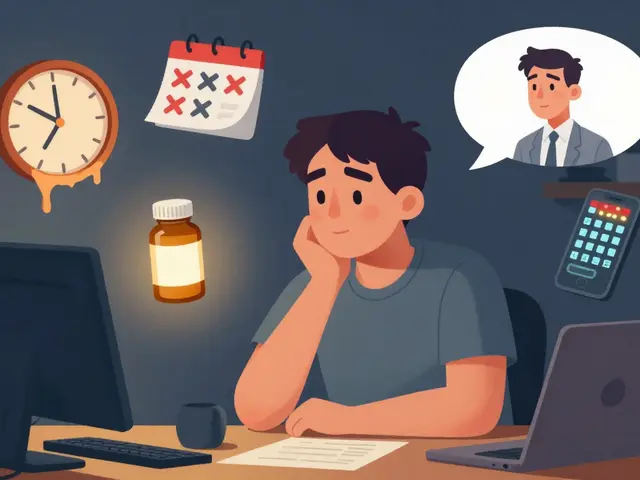Alcohol treatment: how to start, what meds do, and where to find help
Alcohol withdrawal can be dangerous — severe tremors, seizures, and delirium tremens happen. If you or someone you care about is cutting back after heavy drinking, don’t guess. Plan for safety first and get medical advice. This page gives clear, practical steps: what treatment options exist, how common meds work, and how to access care and safe prescriptions.
Fast action steps if you’re thinking of stopping
If you’re quitting alcohol after regular heavy use, call a doctor or an urgent clinic before you stop. If you’ve had seizures, blackouts, or a previous delirium tremens episode, you need supervised detox — usually inpatient. For milder withdrawal, outpatient programs with daily check-ins and meds can work. Know the red flags: high fever, confusion, seeing things, or repeated seizures — go to ER.
Medical treatments that help
There are three meds commonly used to treat alcohol use disorder. Disulfiram (Antabuse) makes drinking unpleasant and helps some people avoid relapse. Naltrexone reduces craving and the reward you feel from drinking. Acamprosate helps many people stay sober after detox. Which one suits you depends on your goals, liver health, and other meds you take.
Expect basic tests before starting meds: liver function blood tests and a review of other prescriptions. Doctors usually combine meds with counseling. Medication alone rarely solves the problem — pairing it with cognitive-behavioral therapy, counseling, or a support group raises the chance of success.
Practical tips for finding care and safe medication access
Start with your primary care doctor or an addiction specialist. Ask about detox options, medication pros and cons, and how side effects are monitored. If cost or travel is an issue, many clinics offer telehealth visits and outpatient medication management.
Thinking about buying meds online? Be careful. Only use pharmacies that require a prescription, show clear contact details, and have verifiable credentials. Our article "Purchase Antabuse (Disulfiram) Online Safely" explains how to spot legit sellers and avoid bad products. Never buy medications from sites that promise no prescription or suspiciously low prices — those are red flags.
Peer support matters. Groups like Alcoholics Anonymous, SMART Recovery, and local sober groups give daily tools, accountability, and community. Combining medication, a treatment plan, and peer support is a proven approach.
If you’re unsure where to start, call a trusted clinic, ask for an addiction medicine consult, or use your insurance telehealth line. Keep emergency contacts handy and create a short safety plan for days when cravings spike: call a sponsor, remove alcohol from the home, and schedule a quick check-in with a clinician.
Recovery is personal — some people do best with meds and therapy, others with counseling and support groups. Talk to a clinician, pick a clear plan, and get the medical backup you need. You're not doing this alone; practical help is available.






